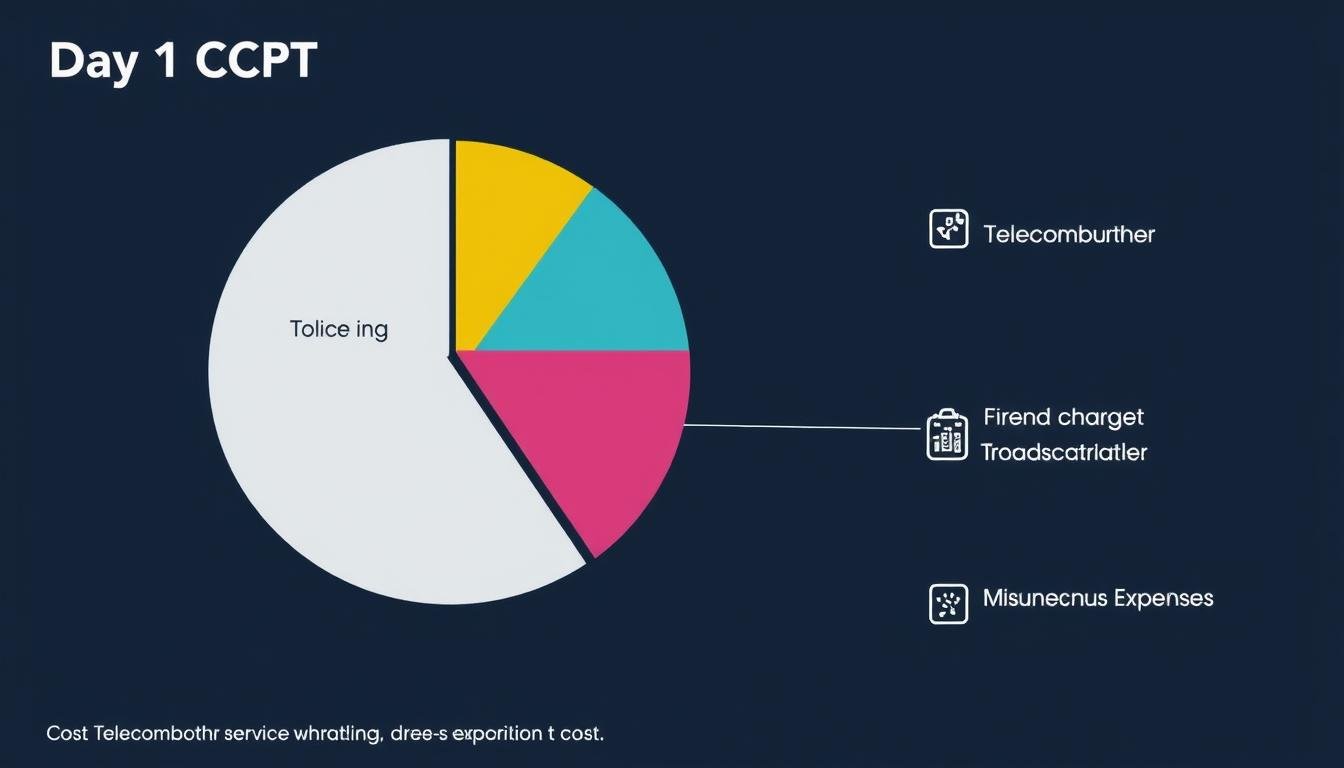Are you an international student starting a Doctoral of Business Administration (DBA) program? This CPT Dog Day 1 CPT DBA journey comes with Day 1 Curricular Practical Training (CPT) opportunities. Financial planning is key as you begin this academic and professional path.
Handling the Day 1 CPT DBA program can be tough, especially for international students. But, with the right strategies, you can achieve your goals.
Key Takeaways
- Understand the various scholarship and financial aid options available for Day 1 CPT DBA programs.
- Learn how to create a realistic budget that accounts for tuition, living expenses, and hidden costs.
- Explore alternative funding sources, such as work-study programs and monthly payment plans, to make your DBA more affordable.
- Discover strategies for managing your finances while on CPT and planning for your future career goals.
- Utilize resources and tools to stay on top of your financial obligations and make informed decisions throughout your DBA journey.
As you start your Day 1 CPT DBA program, be proactive and informed about your finances. Knowing your options and planning wisely can help you succeed in your DBA journey and beyond.
Understanding Day 1 CPT and Its Requirements
If you’re an international student in a Doctor of Business Administration (DBA) program, you need to know about Day 1 Curricular Practical Training (CPT). Day 1 CPT lets you do paid internships in your field of study right from the start.
What is Day 1 CPT?
Day 1 CPT is a special chance for international students to get work experience while studying. It’s made to fit with your studies, offering real-world learning in areas like Data Management, Cloud Computing Fundamentals, or SQL Proficiency.
Eligibility Criteria for Day 1 CPT
- You must be at a university that supports Day 1 CPT, like Sofia University, which has a DBA program.
- You need to have finished at least one year at a college before starting the DBA program.
- You must get approval from your Designated School Official (DSO) before starting any paid internships.
Benefits of Day 1 CPT for International Students
- You get valuable work experience, making you more attractive to employers.
- You can earn money while studying, helping with the costs of your DBA program.
- After graduating, you might find full-time jobs thanks to the connections and experience from your internships.
Understanding Day 1 CPT helps international students make smart choices. It’s a great way to enhance their DBA studies.
“Day 1 CPT is a game-changer for international students, allowing them to gain practical experience and build a professional network from the very start of their DBA journey.”
Creating a Budget for Your DBA Studies
Getting a Doctor of Business Administration (DBA) degree is a big financial step. It’s key for international students to budget well. You need to think about tuition costs, living expenses, and hidden costs of graduate studies.
Determining Tuition Costs
Tuition for DBA programs varies a lot. For example, Campbellsville University’s program costs range from $16,500 to $19,800. New England College’s program costs range from $16,944 to $18,704. The University of the Cumberlands offers programs costing between $17,500 and $46,200. It’s vital to check the tuition fees at the universities you’re looking at to get a clear picture of your costs.
Accounting for Living Expenses
International students also need to think about living costs like housing, food, transportation, and healthcare. These costs can add up fast, especially in expensive places. Make sure to look up the average cost of living in the area of your DBA program to budget correctly.
Hidden Costs of Graduate Programs
Graduate programs often have hidden costs. These can include textbooks, technology fees, research materials, and other small expenses. To avoid surprises, ask about these costs when looking at DBA programs.
Some schools, like Westcliff University, NEC, Trine University, and Saint Peter’s University, offer monthly payment plans. This can help international students manage their tuition fees better. It’s a good option for those looking to make their DBA studies more affordable.
“Budgeting for a DBA program is crucial for international students, as it ensures they can focus on their studies without worrying about unexpected financial obstacles.”
Financial Aid Options for Day 1 CPT Students
Getting financial aid is key when you’re in a Doctorate in Business Administration (DBA) program. This is especially true if you’re an international student with Day 1 CPT eligibility. You can look into scholarships, federal and state aid, and private loans.
Scholarships Specific to DBA Programs
Many schools have scholarships just for international DBA students. For example, Monroe College has the International Scholarships (INTS). Westcliff University also offers Distinguished Scholarships. These can help a lot with the cost of your studies.
Federal and State Financial Aid
Even though federal and state aid might be hard to get for international students, it’s worth trying. Talk to your school’s financial aid office. They can tell you if you qualify and how to apply.
Private Loans for International Students
If you need more money for your DBA studies, private loans are an option. Companies like Mpower Financing and Ascent offer loans without needing a co-signer. Mpower Financing’s rates are between 7.52% and 14.98%. Ascent has loans for both undergrad and graduate students, with and without a co-signer.
Looking into these financial aid options can help you start your Day 1 CPT DBA studies. It can also open doors to the Cloud Practitioner Essentials and AWS Certified fields.
Managing Your Finances While on CPT
Starting your Database Administration (DBA) journey as an international student means managing your money well during Curricular Practical Training (CPT). You’ll need to open a U.S. bank account, understand taxes, and budget wisely. This guide will help you stay financially stable during your CPT.
Opening a U.S. Bank Account
First, open a U.S. bank account. It makes handling money easier, from direct deposits to everyday transactions. Look for accounts made for international students at various banks. Choose one that fits your needs best.
Understanding Taxes and Your CPT Income
As a CPT participant, knowing your taxes is key. Even with little income, you might need to file U.S. tax returns. Learn about the tax forms and deadlines to avoid trouble.
Budgeting Tips for Students on CPT
Good budgeting is essential for CPT. Track your spending on tuition, housing, and food. Use student discounts to save. Also, consider on-campus jobs for extra income.
| Schools Offering Payment Plans | Payment Plan Availability | Payment Plan Details |
|---|---|---|
| Westcliff University | Yes | Registration fee of $50 per installment plan per semester, down payment of 40% of total tuition plus $50 registration fee. |
| New England College | Yes | Non-refundable registration fee of $65 per payment plan agreement, returned payment fee up to $30. |
| Monroe College | Yes | Insufficient funds/credit penalty of $30, automatic payment dates on the 5th or 20th of each month, registration fee of $30 added to the first payment. |
| Saint Peter’s University | Yes | Registration fee of $35. |
| McDaniel College | Yes | Interest-free installment plans with a $75 registration fee per semester. |
| Harrisburg University | Yes | Registration fee of $50 per semester. |
| Sofia University | Yes | Registration fee of $35 per quarter. |
| Ottawa University | No | N/A |
| National Louis University | No | N/A |
| Humphreys University | No | N/A |
| CIAM | No | N/A |
By following these tips, you can manage your finances well during CPT. This will help you stay financially stable while studying Database Administration (DBA).

Finding Part-Time Employment Opportunities
As a Day 1 CPT DBA student, finding part-time jobs is a great way to boost your studies and career. You can use your SQL skills, database design, and performance tuning to find jobs that match your goals.
Networking Tips for Job Placement
Networking is crucial for finding part-time jobs. Talk to your professors, alumni, and industry experts to make connections and find job openings. Go to career fairs, join professional groups, and use your university’s career services to grow your network and stay updated on job trends.
Understanding Work Authorization Rules
It’s important to know the work rules for international students on Day 1 CPT. Learn about CPT eligibility, how long you can work, and what you need to report to stay legal.
Potential Employers for DBA Students
DBA students with SQL skills, database design, and performance tuning can find jobs in many fields. Tech companies, banks, and research groups often look for people with these skills. Look for jobs like database admin, data analyst, or business intelligence associate to use your DBA skills.
| Employer Type | Potential Part-Time Roles | Relevant DBA Skills |
|---|---|---|
| Technology Companies | Database Administrator, Data Analyst | SQL Proficiency, Database Design, Performance Tuning |
| Financial Institutions | Business Intelligence Associate, Data Scientist | SQL Proficiency, Database Design, Performance Tuning |
| Research Organizations | Research Assistant, Data Visualization Specialist | SQL Proficiency, Database Design, Performance Tuning |
By getting involved in the job market and using your DBA skills, you can gain valuable experience and financial support during your Day 1 CPT.
Planning for Future Financial Goals
Starting your Day 1 CPT DBA journey means thinking about your future money goals. You might want to go back to school, start a business, or get a full-time job. Good planning can help you reach your dreams.
Saving for Post-DBA Opportunities
While you’re working on your DBA, you might think about going for a doctoral degree, starting a business, or getting a job in industry. Set aside some of your Day 1 CPT money in a special savings account. This will help you have money for any opportunities after your DBA, so you can make smart choices about your future.
Investing Wisely as a Student
Being a Day 1 CPT DBA student gives you a chance to start investing early. Look into safe investments like high-yield savings accounts or index funds. This way, you can grow your money over time and build a solid financial base for the future.
Transitioning to Full-Time Employment
After you finish your DBA, you might get Optional Practical Training (OPT). This lets you work in the U.S. for up to 12 months (or 36 months if you’re in STEM). Learn about the OPT application and the rules for working. Some schools, like International Technological University, offer scholarships to help you switch from an F-1 visa to an H-1B visa.
Planning for your future money goals helps you smoothly move from your Day 1 CPT DBA program to your next career step. With smart saving, investing, and knowing about work rules, you’ll be ready to succeed in Data Security, Cloud Practitioner Essentials, and Day 1 CPT DBA fields.

Resources for Ongoing Financial Support
Starting your Doctor of Business Administration (DBA) at Westcliff University with Day 1 Curricular Practical Training (CPT) opens doors to many resources. You’ll find tools and services to help with your financial needs. These include online planning tools and professional advising, all designed for international students.
Online Financial Planning Tools
Many online platforms have tools for international students, like those in the DBA with Day 1 CPT program. These tools help you track spending, make budgets, and find ways to save money. They also teach about taxes, investing, and securing your financial future.
Professional Financial Advising Services
Getting advice from financial experts is crucial during your DBA studies. They can guide you on managing your Day 1 CPT income and taxes. They also help with budgeting, investing, and planning for your future.
Community Resources for International Students
Westcliff University isn’t the only place to find help. Local groups for international students offer valuable support. They provide workshops on money management, tax help, and cultural tips. These resources can be a big help as you settle into the US financially.




